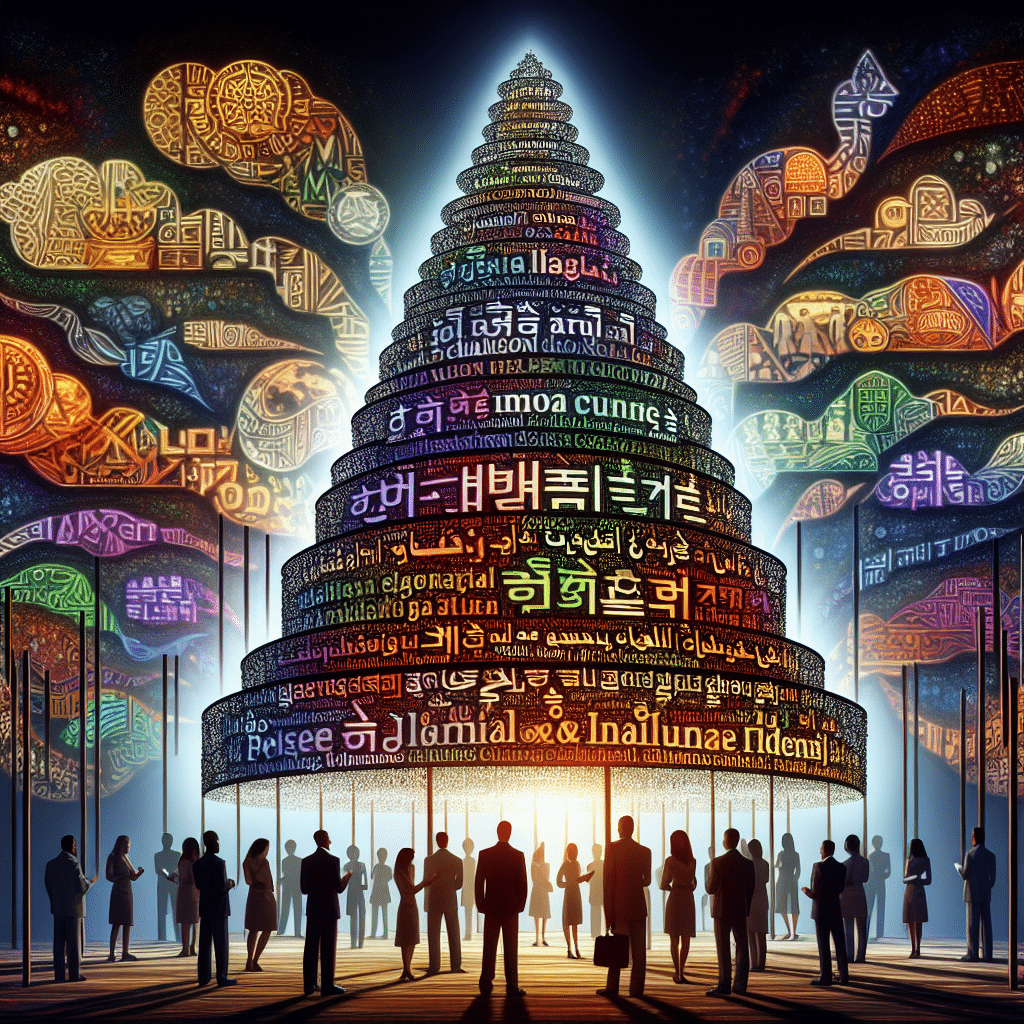-
Table of Contents
Exploring Historical Narratives: How Poetry Reflects and Shapes Cultural Identity
Poetry, with its intricate weave of words and emotions, has long served as a mirror reflecting the soul of cultures across the globe. It is through the delicate interplay of rhythm, metaphor, and imagery that poets have captured the essence of their societies, preserving historical narratives and shaping cultural identities. As we delve into the role of poetry in shaping cultural identity, it becomes evident that this art form is not merely a reflection of societal values but also a powerful force in molding them.
Throughout history, poetry has been a vessel for collective memory, encapsulating the triumphs and tribulations of civilizations. For instance, the epic poems of ancient Greece, such as Homer’s “Iliad” and “Odyssey,” are more than mere stories; they are repositories of Greek values, beliefs, and historical events. These works have transcended time, influencing not only the cultural identity of ancient Greece but also leaving an indelible mark on Western literature and thought. Similarly, the rich oral traditions of African cultures have been preserved through poetry, with griots—traditional storytellers—using verse to recount the histories and genealogies of their people. This oral poetry has been instrumental in maintaining a sense of identity and continuity within communities, even in the face of external pressures and changes.
Moreover, poetry often serves as a medium for resistance and social change, challenging dominant narratives and offering alternative perspectives. During periods of colonization and oppression, poets have used their craft to assert cultural identity and resist assimilation. The works of postcolonial poets such as Derek Walcott and Chinua Achebe exemplify this dynamic. Walcott’s poetry, infused with the landscapes and languages of the Caribbean, reclaims a sense of place and identity for his people. Achebe’s verse, on the other hand, confronts the cultural dislocation wrought by colonialism, seeking to restore pride in African heritage. Through their words, these poets have not only documented their societies’ struggles but also inspired movements toward cultural revival and self-determination.
In addition to its role in preserving history and fostering resistance, poetry also acts as a bridge between generations, transmitting cultural values and wisdom. The lyrical nature of poetry makes it an effective tool for education, embedding moral lessons and cultural norms within memorable verses. In many Indigenous cultures, poetry is intertwined with rituals and ceremonies, reinforcing communal bonds and shared identities. For example, the haiku tradition in Japan encapsulates the Zen Buddhist appreciation for nature’s fleeting beauty, while also imparting a sense of mindfulness and simplicity to successive generations.
Furthermore, contemporary poetry continues to shape cultural identity by addressing current issues and reflecting evolving societal values. Poets like Claudia Rankine and Warsan Shire tackle themes of race, migration, and identity in their work, resonating with diverse audiences and fostering a sense of solidarity among marginalized groups. Their poetry not only highlights ongoing struggles but also celebrates resilience and the multifaceted nature of modern identities.
In conclusion, poetry’s role in shaping cultural identity is multifaceted and profound. It preserves historical narratives, challenges oppressive structures, educates future generations, and adapts to contemporary realities. Through its timeless appeal and emotive power, poetry remains a vital force in defining who we are as individuals and as members of larger cultural communities. As we continue to navigate an ever-changing world, poetry will undoubtedly remain a beacon of cultural expression and identity.
The Power of Language: Poetry as a Tool for Cultural Expression and Preservation
Poetry, with its intricate weave of words and emotions, stands as a powerful testament to the human experience. It transcends the mere act of writing, becoming a vessel through which cultures express their deepest values, beliefs, and histories. The role of poetry in shaping cultural identity is profound, as it not only reflects the essence of a community but also preserves its unique voice for future generations. Through the power of language, poetry becomes an indispensable tool for cultural expression and preservation.
To begin with, poetry captures the nuances of a culture’s language, idioms, and expressions. It is through these linguistic subtleties that a culture’s identity is both revealed and reinforced. For instance, the use of specific dialects or regional vernaculars in poetry can evoke a strong sense of place and belonging. This linguistic richness allows readers to immerse themselves in the cultural context from which the poem originates, fostering a deeper understanding and appreciation of that culture. Moreover, poetry often employs metaphors and symbols that are deeply rooted in cultural traditions, further solidifying its role as a mirror of cultural identity.
In addition to reflecting cultural identity, poetry also plays a crucial role in preserving it. Oral traditions, which have been the cornerstone of many cultures for centuries, rely heavily on poetic forms to transmit knowledge and values across generations. Epic poems, folk songs, and ballads are not merely artistic expressions; they are repositories of collective memory. These poetic forms encapsulate historical events, moral lessons, and communal experiences, ensuring that they are not lost to time. By preserving these narratives in verse, poetry safeguards the cultural heritage of a community, allowing it to endure even in the face of external influences and changes.
Furthermore, poetry serves as a means of resistance and resilience for marginalized communities. In times of oppression or cultural erasure, poetry becomes a powerful tool for asserting identity and reclaiming agency. Poets from oppressed groups often use their craft to challenge dominant narratives and highlight the injustices faced by their communities. Through evocative imagery and poignant language, they give voice to the voiceless and shine a light on the struggles that might otherwise be overlooked. This act of poetic resistance not only affirms the cultural identity of marginalized groups but also fosters solidarity and empowerment.
Transitioning from resistance to celebration, poetry also provides a platform for celebrating cultural diversity and fostering intercultural dialogue. In our increasingly globalized world, poetry can bridge cultural divides by highlighting both the unique aspects of individual cultures and the shared human experiences that unite us all. Through translation and cross-cultural exchanges, poems from different parts of the world can reach new audiences, promoting mutual understanding and respect. This exchange enriches both the source and recipient cultures, creating a tapestry of interconnected identities.
In conclusion, the power of language in poetry is unparalleled in its ability to express and preserve cultural identity. By capturing linguistic nuances, preserving oral traditions, resisting oppression, and celebrating diversity, poetry plays an integral role in shaping the cultural landscape. As we continue to navigate an ever-changing world, the timeless art of poetry remains a steadfast guardian of our collective heritage, ensuring that the voices of our ancestors resonate through the ages.
Bridging Generations: The Role of Poetry in Transmitting Cultural Values and Traditions
Poetry, with its rhythmic cadence and evocative imagery, has long served as a vessel for the transmission of cultural values and traditions. It acts as a bridge, connecting generations and preserving the essence of a community’s identity. Through the ages, poets have captured the spirit of their times, embedding within their verses the collective wisdom, beliefs, and customs of their people. This literary form, therefore, plays a crucial role in shaping and maintaining cultural identity.
In many cultures, poetry is not merely an artistic expression but a repository of history and heritage. Oral traditions, for instance, have relied heavily on poetic forms to pass down stories from one generation to the next. These narratives often encapsulate moral lessons, societal norms, and historical events, ensuring that the younger members of the community inherit a sense of continuity and belonging. The rhythmic nature of poetry makes it easier to remember and recite, thus facilitating its role as a mnemonic device in cultures where written language may not have been prevalent.
Moreover, poetry often serves as a reflection of the collective consciousness of a society. It captures the zeitgeist, mirroring the hopes, fears, and aspirations of its people. For example, during times of political upheaval or social change, poets have often emerged as the voice of resistance or reform. Their works resonate with the populace, galvanizing them towards a common cause or providing solace in times of distress. In this way, poetry not only preserves cultural values but also actively shapes them, influencing the direction in which a society evolves.
The intergenerational transmission of cultural values through poetry is also evident in the way traditional forms are adapted by contemporary poets. While they may experiment with new styles and themes, these modern-day bards often draw inspiration from their cultural heritage. By reinterpreting age-old motifs and symbols within a contemporary context, they create a dialogue between the past and the present. This interplay ensures that cultural traditions remain relevant and dynamic, rather than static relics of a bygone era.
Furthermore, poetry’s role in shaping cultural identity is not confined to any one region or community. Across the globe, diverse cultures have harnessed the power of verse to articulate their unique worldviews. From the haikus of Japan to the ghazals of Persia, from the sonnets of Europe to the praise songs of Africa, each poetic tradition offers a window into the soul of its people. These varied forms enrich the global tapestry of human expression, highlighting both our shared humanity and our distinct cultural identities.
In addition to its cultural significance, poetry also fosters a sense of empathy and understanding among different communities. By engaging with poetic works from various cultures, individuals can gain insight into experiences and perspectives different from their own. This cross-cultural exchange promotes mutual respect and appreciation, breaking down barriers and fostering a more inclusive world.
In conclusion, poetry’s role in transmitting cultural values and traditions is multifaceted and profound. It serves as a bridge between generations, preserving the essence of a community’s identity while also adapting to contemporary contexts. Through its evocative power, poetry captures the collective consciousness of societies, reflecting their values and shaping their evolution. As a universal form of expression, it enriches our global cultural heritage and fosters empathy among diverse communities. Thus, poetry remains an indispensable tool in the ongoing endeavor to understand and celebrate our shared human experience.
Q&A
1. How does poetry contribute to the preservation of cultural heritage?
– Poetry captures and preserves the language, traditions, and values of a culture, often passed down through generations, thus maintaining a sense of historical continuity and identity.
2. In what ways can poetry influence social and political movements within a culture?
– Poetry can articulate collective emotions, inspire action, and provide a voice to marginalized groups, thereby playing a crucial role in mobilizing social and political movements.
3. How does poetry facilitate cross-cultural understanding and exchange?
– Poetry transcends linguistic and cultural barriers, allowing for the sharing of diverse experiences and perspectives, which fosters empathy and mutual respect among different cultures.
Conclusion
Poetry plays a crucial role in shaping cultural identity by encapsulating the values, beliefs, and experiences of a community. It serves as a medium for expressing collective emotions, preserving historical narratives, and fostering a sense of belonging. Through its unique use of language and symbolism, poetry can challenge societal norms, inspire change, and bridge generational gaps. Ultimately, poetry not only reflects but also actively constructs and evolves the cultural identity of a people, making it an indispensable element in the tapestry of human society.

